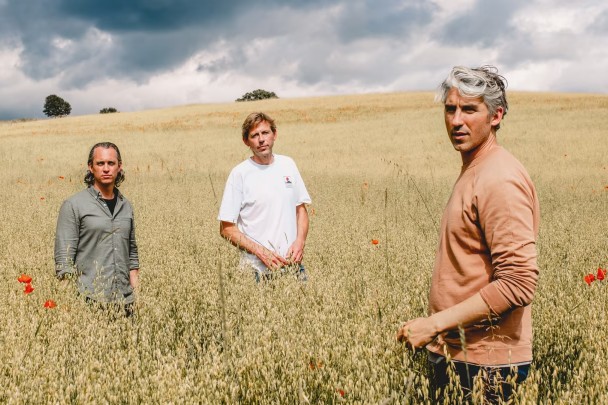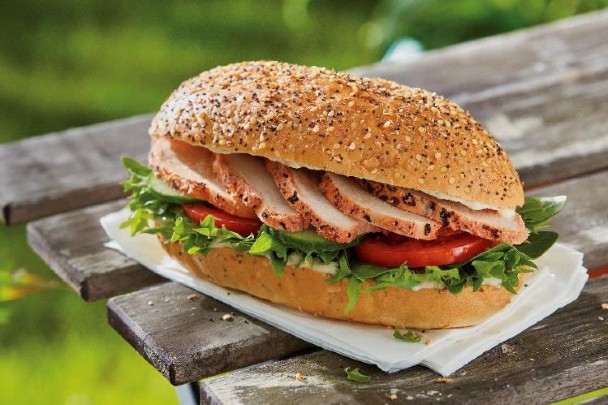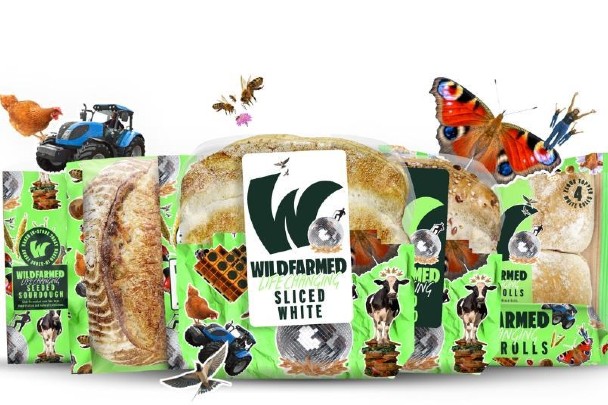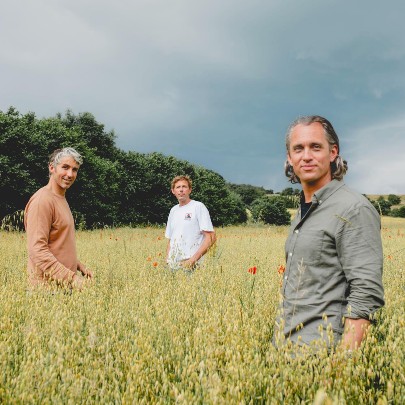September 30, 2024 Industry news
In a world where 98 per cent of farmland is farmed using harmful conventional systems, land is depleted, biodiversity is under threat, and rivers are increasingly polluted with harmful chemicals.
Agriculture, the cornerstone of our food system, is driven by an industrial model that prioritises yields over sustainability, chemistry over biology, and convenience over care for the land. But change is in the air, and at the forefront of this revolution is Wildfarmed; a company determined to shift the paradigm by bringing regenerative farming practices to the forefront of the UK's agricultural industry.
From fame to fields
The story of Wildfarmed began in an unexpected place: the music scene. Andy Cato, one half of the iconic electronic music duo Groove Armada, found himself disillusioned by the disconnection between the modern food system and the natural world. The hustle of urban life and the rise of processed, chemically reliant food production became glaringly at odds with the rhythms of nature. Determined to make a change, Andy swapped synthesisers for soil, launching an ambitious trial on his farm in France, determined to move from chemical to biological methods.

Edd Lees, Andy Cato and George Lamb
Fast forward to 2018, and Wildfarmed was formed when Andy joined forces with financier Edd Lees and former radio and television presenter George Lamb to create a business designed to transform lives and landscapes by producing delicious, healthy, and regenerative flour, bread, pizza, and everything in between.
In the beginning, it was a leap of faith. The principles of regenerative farming, which emphasise restoring soil health, biodiversity, and natural ecosystems, seemed too idealistic to many farmers entrenched in conventional methods.
But Andy’s experiment soon bore fruit - quite literally and his wheat, all grown without pesticides or synthetic fertilisers. was transformed into loaves of bread that he sold in a local bakery. The bread proved a hit, and it became clear to Andy that this regenerative approach was not just sustainable, it was scalable.
Changing the mindset
Farming communities, however, can be skeptical of change. Centuries of conventional agriculture have created deep-rooted practices that are hard to unlearn. Wildfarmed understood that to make a significant impact, they would need to build awareness and educate farmers about the benefits of regenerative agriculture. Their mission is not just about selling their products. It is about transforming an industry.
Through grassroots initiatives and local outreach, Wildfarmed began visiting farming communities, sharing the success of their methods, and explaining the ecological and economic benefits. They understood that trust is built over time and that farmers needed to see first hand that regenerative practices could not only sustain the land but also improve yields, profitability, and overall resilience.
As a result, Wildfarmed is now all about community education and helping people realise that restoring nature’s balance isn’t just a noble ide, it’s a feasible business model.

A voice for change
It wasn’t enough to simply convert farmers. Wildfarmed recognised the need for systemic change at the governmental level. Partnering with DEFRA, they lobbied for the creation of regenerative farming standards, resulting in what is now known as The Gold Standard - a framework that promotes sustainable farming practices across the UK. The Gold Standard holds a mirror to conventional practices, demonstrating that a shift from chemical-based systems to biologically driven, regenerative methods is not only possible but necessary for the future of food production.
This legislative push has cemented Wildfarmed’s place as a leading advocate for agricultural transformation.
By setting clear standards, the company hopes to inspire more farmers to transition to regenerative practices and to ensure that consumers can make informed choices about the food they buy.
Flour power
As Wildfarmed grew, so did its ambitions. Pioneering regenerative farming was just the first step. The next challenge was to ensure that their wheat - and the philosophy behind it - could reach the wider market.
This is a challenge that the brand is now overcoming and today Wildfarmed flour can be found in bars and restaurants across the UK and increasingly on the shelves of major retailers like Marks & Spencer. The partnership with M&S has been a defining moment for the brand, symbolising how a small, regenerative farming movement can break into the mainstream.
In true Wildfarmed style, the brand took a creative approach to launching their partnership with M&S. They branded a tractor and drove it to the M&S store in Stroud, a town chosen strategically for its high concentration of farmers. The bold stunt drew a crowd and shone a spotlight on the company’s mission, proving once again that creativity, ingenuity and a bit of hustle can go along way.

Manifesting success
Wildfarmed’s tenacity has become one of its defining features. In their quest to partner with bakery chain and cultural British icon Greggs, they again took an unconventional approach.
Instead of waiting for an invitation, Wildfarmed began posting about Greggs on their social media channels. As soon as their followers caught wind, they started tagging Greggs in posts, significantly amplifying the conversation.
Momentum grew and Greggs soon took notice and what started as a simple desire to work with the chain became reality through sheer persistence, creativity, and community engagement.
Spreading the word
Walk down the bread aisle today, and Wildfarmed’s packaging will likely catch your eye. Bright, bold, and unapologetically different, their products are designed to stand out in a market where bread packaging tends to blend in. But it’s not just about aesthetics. Wildfarmed wants consumers to understand the story behind their flour, their bread, and their mission. Their aim is to make the regenerative farming movement as accessible and appealing as possible, both to farmers and consumers.
To help spread the word, the company has also partnered with brands like ASK Italian, where Wildfarmed flour is now used in all pizzas. In an effort to further extend their reach and promote the benefits of regenerative farming principles to the younger generation, ASK Italian's kids' menu even includes educational games designed to teach children about sustainable agriculture. It is this blend of education, innovation, and a commitment to change that makes Wildfarmed’s brand story so unique.
Wildfarmed’s commitment to transparency and spreading their message has even caught the attention of high-profile media figures. The brand was recently featured on Clarkson’s Farm, a popular television show that highlights the trials and tribulations of modern farming. The show has helped to bring the topic of regenerative farming to a broader audience and Wildfarmed has already agreed to appear in future series, further cementing its place in the public eye.

A simple, clear message
At its core, Wildfarmed’s brand message is simple: we need to work with nature, not against it. By using clear, accessible language and focusing on the tangible benefits of regenerative farming, the company has managed to strike a chord with consumers, farmers, and policymakers alike.
Whether it’s through lobbying for government standards, partnering with major retailers, or simply selling bread that’s as delicious as it is sustainable, Wildfarmed is on a mission to change the way we think about food, farming and our planet’s future.



